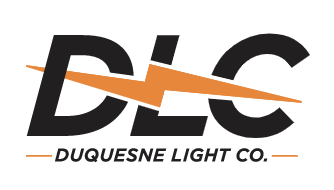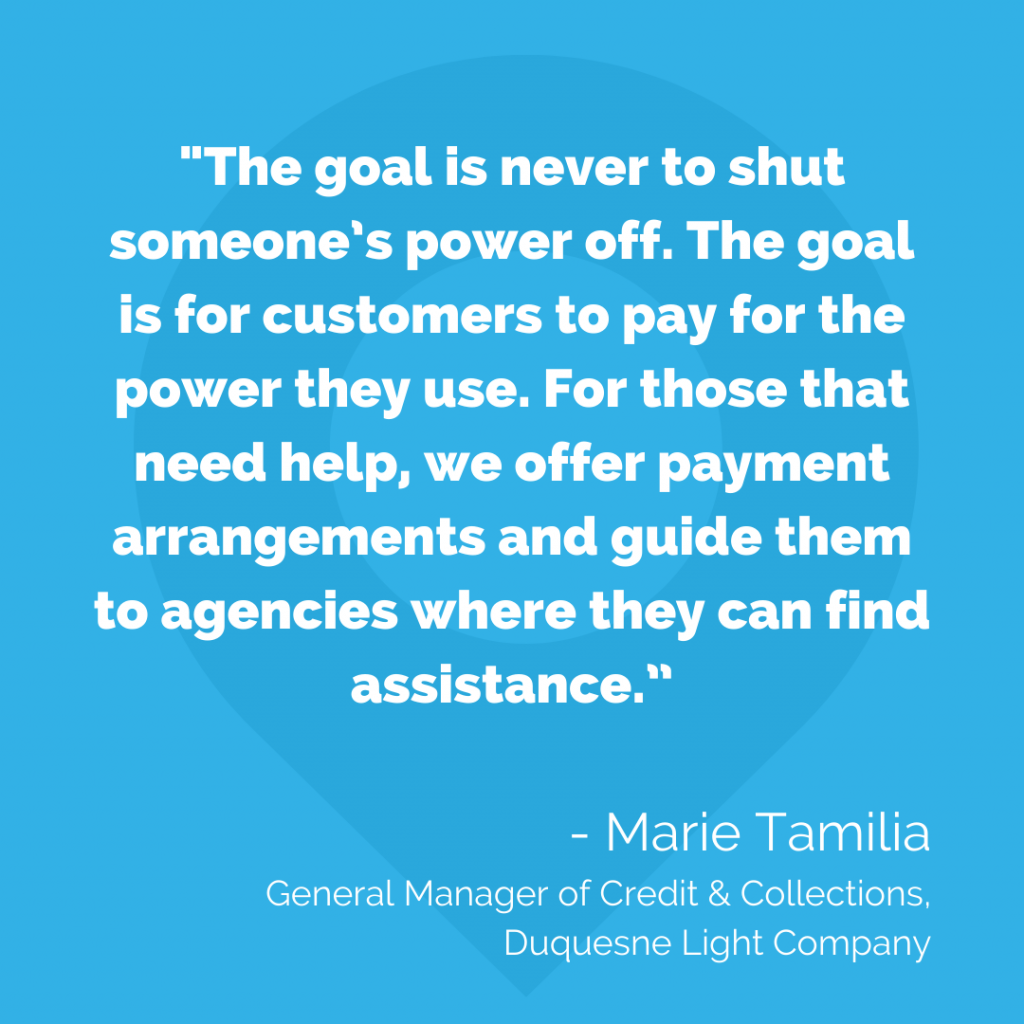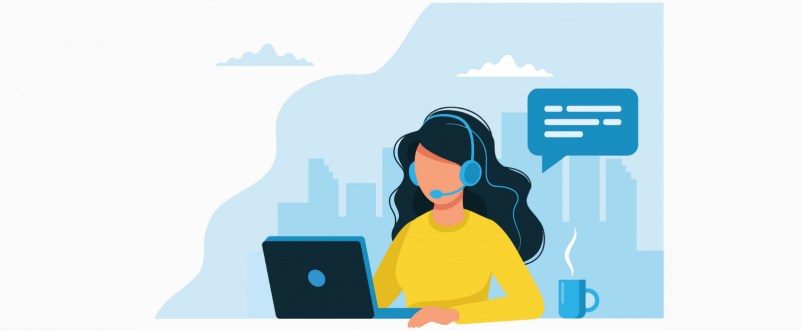Pennsylvania’s Public Utility Commission (PPUC) voted on September 17th to, once again, keep the state’s utility shut-off moratorium in place. This may seem like a win for financially struggling residents whose lights, water and heat will stay on even if they don’t pay their bills. But utility companies are worried about what lies ahead for vulnerable customers. Luckily, Duquesne Light Company’s customer data analysis and proactive outreach demonstrates how utilities can offer their customers a lifeline during these turbulent times.

Marie Tamilia, General Manager of Credit & Collections at Pittsburgh-based Duquesne Light Company, sees firsthand the number of electricity customers whose late bills have piled up since COVID-19 hit the region. Watching the numbers of at-risk households tick upward, she wants more people to know about the financial support that is available to help them.
“It’s hard to distinguish between which customers can pay and which cannot,” says Tamilia. “For customers that aren’t paying anything, an extended moratorium is going to hurt them more than help.”
That’s why DLC has been working to analyze its customer payment patterns: so they can better understand which households are exhibiting financial stress, and how severely. With this knowledge, Tamilia’s team is able to steer customers in need to the appropriate resources that will keep them out of delinquency and safe from a future shut-off.
“The goal is never to shut someone’s power off”
The PPUC meets again on October 7th to discuss whether to continue the moratorium. But, according to Andrew Maykuth’s reporting in the Philadelphia Inquirer, it seems likely that customers won’t face shut-offs until April 1, when winter shut-off moratoriums typically end. At that point (if not sooner), customers will have to pay off their balances, no matter how high they’ve gotten, or have their services terminated.
“The goal is never to shut someone’s power off,” Tamilia says. “The goal is for customers to pay for the power they use. For those that need help, we offer payment arrangements and guide them to agencies where they can find assistance.”

In order to keep customers out of delinquency and to help the company continue receiving revenue, DLC is offering flexible payment arrangements to anyone who calls into its customer contact center.
“Even our business customers,” Tamilia explains. “Because, in the long run, by not paying at all, it’s going to put customers into a position where they may never recover.”
BlastPoint’s analysis of late customer payments throughout the pandemic shows that the more money a customer owes (or the more months that go by where no payment is made), the harder it will be for that customer to recover financially.
On the other hand, if they can continue to make some payments to keep their overdue balances under about $300, they’re more likely to survive pandemic-related financial setbacks. However, once a customer’s balance tops $1K, our data indicates they will be less likely to pay anything at all.
“We’re here for you”
DLC customers, even those who don’t reach out to report payment issues, are benefitting from the utility’s data analysis efforts. Through targeted, outbound engagement campaigns, via cold calls and emails, Tamilia says, “We’ve contacted those who were late on their bills about getting onto programs, and now we’re reaching out to our low-income customers who are current on their bill and still eligible for energy assistance but did not apply for it.”
That’s because signing up for assistance isn’t on every customer’s mind in the midst of a moratorium.
“A lot of times,” Tamilia says, “customers don’t apply for assistance until they get a physical termination notice that says their power is going to be shut off. That’s when they act. But because we’re not currently shutting off their power, we’re trying to make them aware and to get them those assistance funds because, at the end of the day, this is hurting them so much and putting them in jeopardy.”
“We tell them, ‘We’re here for you,’” Tamilia adds. Her team then provides energy assistance information, whether it’s LIHEAP (for which enrollment is now closed until November 1), Dollar Energy Fund, CAP, Renters’ Relief through Allegheny County*, renters’ and homeowners’ relief through the CARES Act via the Commonwealth of Pennsylvania, or budgeted, monthly payment arrangements directly through DLC.

(*Note: The deadline to apply for Allegheny County’s COVID Rent Relief program is September 30, 2020)
More information about these programs is available through DLC’s ‘Here to Help’ resource center online, and via the company’s telephone-automated IVR (Interactive Voice Response) service. For questions, customers can contact Customer Service (412-393-7100).
“But there are a lot of people, and even businesses, that have never been in this situation before,” Tamilia says.
Shame, pride and embarrassment can affect whether they reach out to ask for help at all, which is why DLC’s self-serve payment arrangement tool is a great solution. “The self-serve portal really helps. Customers can set up an account online and plug in a monthly amount that’s affordable for them, which goes straight to a CSR. There may be a minimum amount that’s required, but customers can play around on it and see if it’s for them.”
What is your utility doing to keep customers out of delinquency? What methods are you using to engage at-risk customers through the coronavirus crisis? What payment patterns are you noticing in your region? If you’d like help analyzing your customer data or building solutions that recoup lost payments and generate revenue, reach out to us and be sure to read more about our solutions for managing the for utility providers!
Huge thanks to Marie Tamilia for taking the time out of her extremely busy schedule to speak to us, and to all of our friends at DLC for sharing their story.

